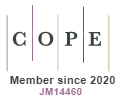Strategies to reduce ethnic decharacterization in Higher Education mindfulness practice
DOI:
https://doi.org/10.5585/47.2023.25587Keywords:
ethnic decharacterization; native communities; inclusive education; social programsAbstract
Ethnic decharacterization is a manifestation of conditioning to a new lifestyle, in which multiple intercultural migrations live daily; adapting their cultural identity and adopting social behaviors. The Higher Education institutions of the state of Nuevo León that provides academic service to ethnic communities from Mexico, have the responsibility of promoting educational, social and cultural inclusion within their university society, which allows them to enhance the cultural wealth and pride that distinguishes the country; identity, culture and diversity of native languages. In this framework, the objective arises of knowing the perception of the intercultural community of the university to be analyzed, in the identity, linguistic and traditional sphere. The study was carried out in a Higher Education institution located in the city of Monterrey, Mexico, where eighty-five students from the country's native community participated. It is established that educational centers must design and implement academic and cultural strategies that promote the reduction of social segregation among the university community, thus fostering admiration and reverence for the cultural heritage that distinguishes the Mexican territory.
Downloads
References
Chacoma, M. S. (2018). Estados nacionales y procesos históricos de re-subjetivación de la identidad indígena en jóvenes de educación superior en San Juan. Un estudio de caso. Anuario Digital de Investigación Educativa, (1). https://bit.ly/47I2Uzz
Chacoma, M. S. y Martínez, J. S. I. (2020). Desmemoria y memoria del ser indígena en la Educación Superior de San Juan. Anuario Digital de Investigación Educativa, (3). https://bit.ly/40RohfH
Echeverría, H. (2015). Bronislaw Malinowski y Frederick Erickson. ¿Propuestas metodológicas diferentes?. CRONÍA Revista de Investigación de la Facultad de Ciencias Humanas, 11, 71-93. https://bit.ly/2YiQtZ9
Escalera, L. A. y Sánchez, K. E. (2020). Trabajo social con mujeres indígenas: propuesta de intervención comunitaria con enfoque de sostenibilidad. Carta Económica Regional, 32(125). https://bit.ly/3SVttxc
Gallegos, G. y Martínez, M. L. (2021). Jóvenes indígenas. Prácticas de no reconocimiento de su identidad étnica y estrategias de afrontamiento en universidades convencionales de Nuevo León (México). Revista De El Colegio De San Luis, 11(22), 1–42. https://doi.org/10.21696/rcsl112220211323
Hernández, R., Fernández, C. y Baptista, P. (2014). Metodología de la Investigación. McGraw Hill. https://bit.ly/2xhCmJu
INEGI (2020). Estadísticas a propósito del día internacional de los pueblos indígenas. https://bit.ly/3MTZ6n3
Lara, A. y Rojas, A. (2018). Decolonización y educación indígena autónoma zapatista. Revista CoPaLa. Construyendo Paz Latinoamericana, (6), 99-114. https://bit.ly/3QQ1lsQ
López, F. E. (2022). Identidades Masculinas Emergentes en la Ciudad: Un Proyecto Interdisciplinario de Intervención Social con Hombres Indígenas en Monterrey, Nuevo León,
México. Trayectorias Revista de Ciencias Sociales, 24(54), 126–157. https://bit.ly/3QUTZnE
Malaga, S. G. (2019). Lo indígena en las Declaraciones de Barbados: construcción simbólica e imaginario político de igualdad. Revista Latinoamericana De Estudios Educativos, 49(2), 35–58. https://doi.org/10.48102/rlee.2019.49.2.17
Páramo, D. (2015). La teoría fundamentada (Grounded Theory), metodología cualitativa de investigación científica. Pensamiento y Gestión (39), 119-146. https://bit.ly/2J6iBaJ
Rodríguez, K. D. R., Nestor, A. y Mendoza, J. F. (2021). Libre determinación y representación política indígena en el Área Metropolitana de Monterrey. Mundos Plurales. Revista Latinoamericana de Políticas y Acción Pública, 8(2), 79-96. Doi: https://doi.org/10.17141/mundosplurales.2.2021.4890
Román, A. y Gaspar, J. (2023). Colonización de prácticas alimentarias de mujeres indígenas migrantes residentes del área metropolitana de Monterrey. Perspectivas Sociales, 24(2), 49–72. https://bit.ly/46DrTnJ
San Martín, D. (2014). Teoría fundamentada y Atlas.ti: recursos metodológicos para la investigación educativa. Revista electrónica de investigación educativa, 16(1), 104-122. https://bit.ly/3PhCA6i
Sánchez, M. D. J., Díaz, J. A. y Ramírez, M. F. (2020). Trabajo doméstico de las mujeres hidalguenses en Nuevo León, México. ODEERE, 5(10), 222-238. Doi: https://doi.org/10.22481/odeere.v5i10.7406
Schmelkes, S. (2022). Presencia de sesgos cognitivos en la educación en México. Discriminación, sesgos cognitivos y derechos humanos: Perspectivas y debates transdisciplinarios, 185. https://bit.ly/3QOZ94J
UNESCO (2019). Memoria del Año Internacional de las Lenguas Indígenas 2019. El Correo de la Unesco. https://bit.ly/440CdUA
Downloads
Published
How to Cite
Issue
Section
License
Copyright (c) 2023 Ruth Alejandra Peña Prado

This work is licensed under a Creative Commons Attribution-NonCommercial-ShareAlike 4.0 International License.






